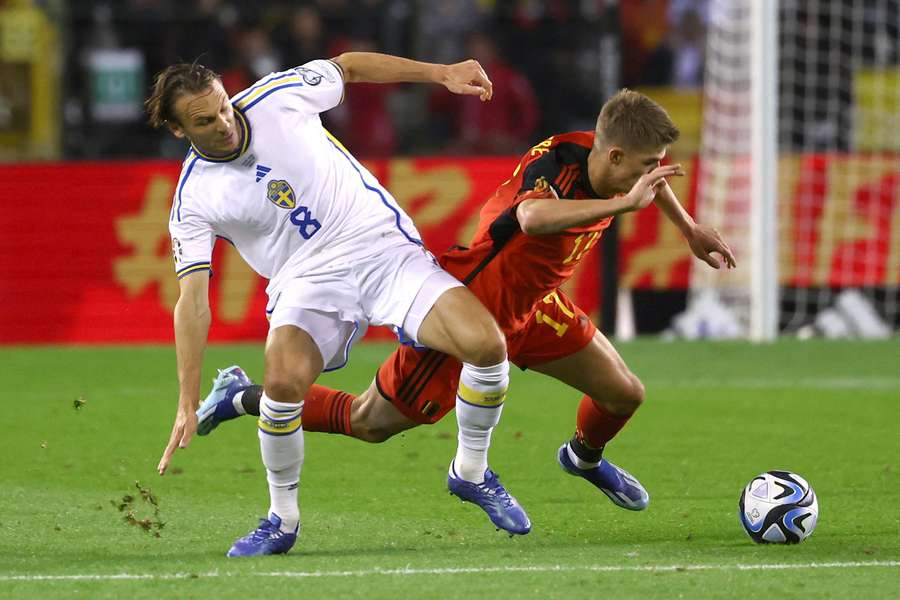Sweden's Janne Andersson set to bow out after Euro qualifying disappointment

Austria's 1-0 win over Azerbaijan clinched their place at next year's finals in Germany and shut the door on Sweden.
The Swedish FA said on October 2nd that Andersson's reign would be over if Sweden missed out and Marcel Sabitzer's second-half penalty that put Austria through with Group F leaders Belgium sealed his fate before Sweden kicked off away to the Belgians.
Andersson will stay in charge for Sweden's two remaining qualifiers in November, away to Azerbaijan and home to Estonia, but he knows his fate has already been determined.
Named to replace Erik Hamren (66), whose dependence on Zlatan Ibrahimovic (42) and diffuse statements about "shining" helped to bring his downfall in 2016, Andersson came in as a no-nonsense football man. Results were good at first but that did not last.
Andersson is one of the last of a swathe of Swedish coaches who were heavily influenced by Englishmen Bob Houghton and Roy Hodgson, whose back-to-basics style in mid-1970s Sweden quickly became part of the country's footballing DNA.
Andersson's arrival coincided with the initial international retirement of Ibrahimovic and the timing was perfect - the coach preferred to concentrate on organising the collective more than accommodating the individual and initially they thrived.
GREAT SUCCESS
The 2018 World Cup showcased Andersson's organisational brilliance and risk-averse nature - the team were incredibly solid but, given that they were not overly keen to commit players forward, they were limited in attack.
Nevertheless, they reached the quarter-finals where they were ousted by Hodgson's England and Janne's reconnection with all that was good in Swedish football was heralded as a great success.
However, the feel-good factor faded and, though the Swedes topped their group at the Euro 2020 tournament when it took place a year later than planned, their dour style won them few fans and they crashed out in the last 16 against Ukraine.
A slide down the Nations League tiers followed and they missed out on the 2022 World Cup, having finished runners-up and third in the 1958 and 1994 tournaments respectively, as opposing coaches picked holes in Andersson's easily-read gameplans.
As the rest of the world was experimenting with false nines, inverted full backs and complex pressing systems, the Swedish style seemed old-fashioned and rudimentary and when Andersson did tinker with his tactics it was often too little, too late.
He was not helped by key players, especially in midfield and defence, ageing and departing the team at inopportune times.
Andersson will leave a side bristling with attacking talents like Alexander Isak (24), Dejan Kulusevski (23) and Anthony Elanga (21) but sorely lacking the kind of teak-tough defenders and box-to-box midfielders on which Sweden's modern football history was built.
He is far from done in the game and his innate decency and unrivalled organisational abilities will no doubt see him in demand from both club and national sides.
But for the man who described managing Sweden as a job he would happily do for life, little else will ever come close to his seven years in charge of his beloved Sweden.
